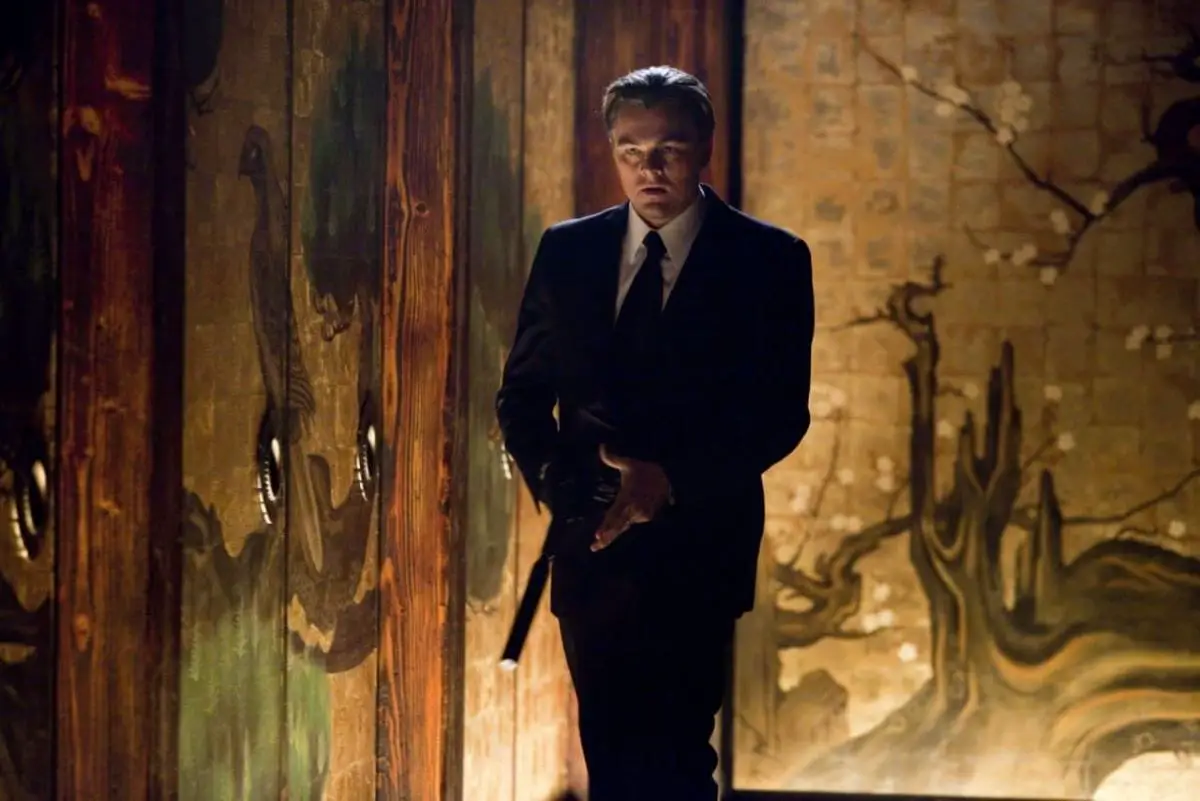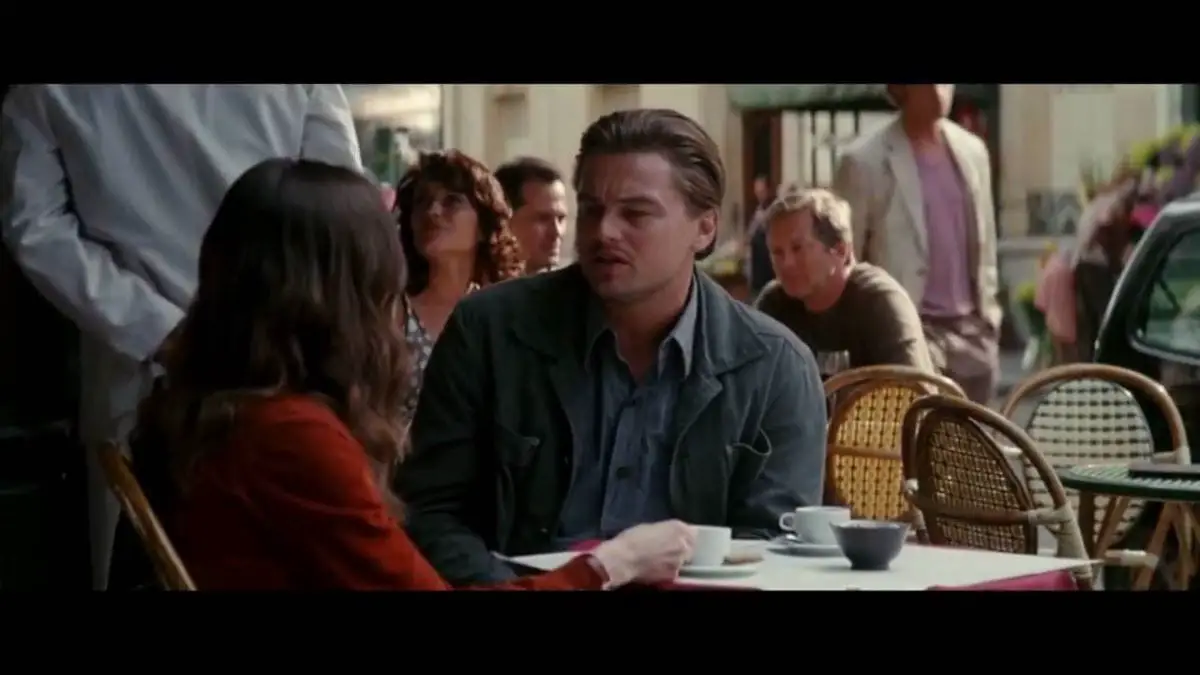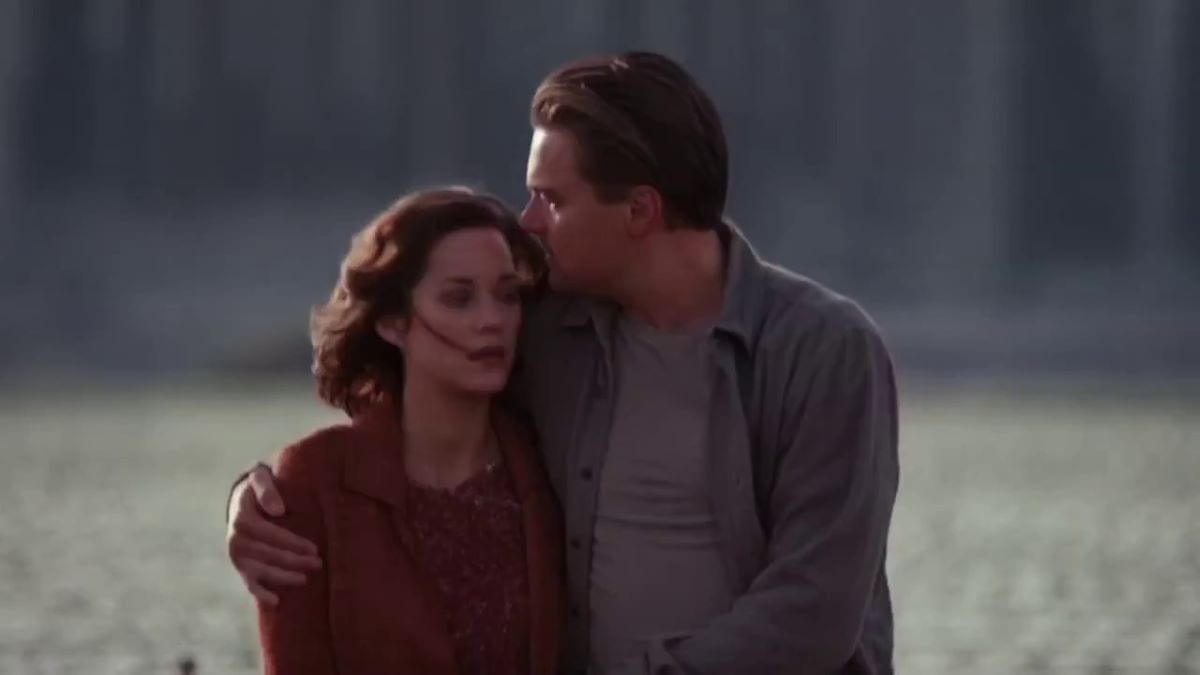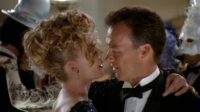Now that the dust has settled from the last decade, people have been creating top ten lists of the best films to come out over the last ten years, and of course the century thus far. Ten years ago this July, Christopher Nolan’s Inception was unleashed on a public that was not prepared beyond a mysterious trailer which popularised the “Bwaaaaaaaaam” sound effect with its images of a city folding in on itself and gravity-defying fight scenes. Inception turned out to be perhaps the best film of the last ten years, and perhaps even Christopher Nolan’s best work so far, and considering his filmography contains Memento (2000) and The Dark Knight (2008) that is saying a lot.
Christopher Nolan himself is kind of an enigma. Looking around the internet and beyond your bog-standard biography stuff, there isn’t a hell of a lot to go on. We know he has been married to his producing partner Emma Thomas for a while, and they met when he was 19, but he isn’t playing the publicity game out there for all to see the way Guy Richie, Martin Scorcese, or Kevin Smith might be. Nolan is perhaps the best director we have right now, and he isn’t endlessly talking up his influences like Quentin Tarantino or David Fincher. Nolan seems to prefer to let the work speak for itself. His work often concerns issues around guilt. Memento follows a man whose life is literally a lie because of the guilt he feels, Insomnia (2002) is all about a man at the ends of the earth who is finally confronted with the wrong he has done in his life, and of course, Batman/Bruce Wayne ventures out into the night seeking justice because of his anger brought on by the guilt he feels over his parents murder.
Inception feels like Nolan concluding the themes of these films in perhaps the most personal way possible. I watch the film at least once a year, and on more recent viewings, it has become more and more obvious that beyond the effects work and intricate plotting, the film is actually telling a very human and very small story that hits home no matter what level of reality you are on. It is perhaps a clue as to how personal Inception really is that the lead character Cobb played by Leonardo DiCaprio actually dresses and looks identical to Nolan himself based on the pictures we have seen of the director. Thanks to the mystery the director is shrouded in, we may never know if Nolan has some kind of guilt complex around someone he once lost in his life, but Inception may well be a big clue.

Inception begins with Cobb waking up on a beach, haunted by visions of children, and taken to the home of an elderly man of some note who he seems to have a connection with. A man who is “filled with regret and waiting to die.” We then flashback to another time and we learn that Cobb is a criminal of sorts, a man who through technology is able to go into people’s dreams and extract their deepest secrets. He is employed to do this through corporations looking to gain an advantage over their rivals. The initial job we see Cobb and his right-hand man Arthur (Joseph Gordon-Levitt) performing for Cobalt Engineering goes wrong, and it turns out it was all a test by Saito (Ken Watanabe) to recruit Cobb and get him to perform the inception of the title on another rival whose father has just passed away. The idea being that they can implant an idea in the subject’s brain as part of a dream and get them to do that very idea in the real world.
The way in which Inception sketches out the rules of its world and uses dream logic is something that deserves every writing accolade there ever was for Nolan even without the directing skills. The essential points of the film that stick with you, however, concern the thing that haunts Cobb and throws a spanner in the works at every turn. Cobb has tried inception before, it’s very difficult but he has done it, and it tragically led to the death of his wife Mal (Marion Cotillard) who now shows up in every dream that Cobb enters. Mal is a constant reminder of his guilt and why he cannot go home, which Saito seeks to remedy if Cobb performs inception on corporate heir Robert Fischer (Cillian Murphy) who is likewise bereaved and carrying some guilt himself.
Like many people consumed by guilt, Cobb is stuck in a cycle, a prison of his own making. Dreams whether we like them or not, are a necessity. They are the brain’s way of filtering and cataloging the day’s events and processing these things. If you are in the process of grief, either through trauma or the loss of someone close to you, dreams are often your worst enemy. Just when you think you have gotten a grip on something, a dream can come along and ruin the day ahead for you and set you right back on any progress you have made in processing. Cobb’s whole life is dreams, the dreaming unlocks the memories and the memories change because of the dream. Cobb is a man who never had the chance to process his own guilt and grief, he had to flee because of the manner in which Mal took her own life, and he was thrust into this life of corporate espionage. This decision ultimately jeopardizes any job that Cobb and his crew take on.
Within the dreams themselves, Mal never appears in the initial layers. As we learn about different layers to the dreams and how they operate, Cobb’s memories initially are not the problem. As we dive deeper, however, Mal often appears to Cobb and his crew and is an agent of chaos, seemingly sent to sabotage any part of the job they are engaged with. Mal is Cobb’s self-destructive id that has no place in the real world anymore, but in the realm of the mind she is omnipresent and damaging, a once beautiful memory made toxic by guilt and circumstance. As we see early on when Cobb is taking Ariadne (Ellen Page) through the process of being an architect in the dream world, any kind of real-world trigger can bring Mal in. Cobb is adamant that Ariadne not create anything with any place in the real world within the dream. When she mimics a real-life location in Paris, Mal appears with a knife as Cobb and his wife once spent time in this place in the real world.

Ariadne becomes a strange figure in Inception, maybe because she is the only female cast member, but maybe something else that may have been underwritten. She becomes the one who realizes how damaged Cobb actually is thanks to his real-world experiences, and how it puts them all in danger. In one scene, curiosity and possibly empathy get the better of her, and she jacks into a dream Cobb is in the midst of. There she finds that without the crew, Cobb’s dreams are represented by an old elevator going down levels of his memories and guilt. In the basement is Mal in the apartment where she died in an almost prison. Except that, in reality, this is Cobb’s prison, and Mal reacts in the way that his poisoned memories of her always react—with rage and confusion fuelling his guilt. Ariadne is perhaps the audience’s viewpoint on this whole world, and Ellen Page was the perfect actress to cast thanks to her likeability and empathy.
We learn later through Cobb opening up to Ariadne, just what happened the first time Cobb performed inception. During experimentation with the dream-sharing technology Cobb and Mal entered a dream and went deep—so deep into the sub-conscious that they built a whole world, a world where they lived a full life and grew old together. Cobb put into Mal’s head the possibility that the dream world that they created was the real world, and the actual world outside the dream was the illusion. When it came time to wake up, Mal couldn’t adjust and had some kind of breakdown. She presented Cobb with an impossible choice, die with her to go back to their perfect world, or face real life without her but on the run. She had pre-gaslit him before her suicide and made it seem like he was responsible for her death.
This is what causes Cobb the endless guilt he feels, the idea that maybe he had been the one responsible and had lost the love of his life due to his own carelessness. Crucially, Cobb hasn’t realized that what killed Mal wasn’t really his fault. If you think about the dreams and memories Cobb has of Mal, these are made up of the entirety of the time that he knew her. Her reacting with anger, jealousy, and rage in the dream came from somewhere, and I don’t believe that it was just that final night in the apartment when she ended her life. The lifelong dream that they shared may well have been the triggering event, but I believe that the mental condition was embedded from the start, and was set off by what they shared together. When you boil it down, someone who cannot tell dreams from reality has a real-world diagnosis in most cases and this is what Cobb has lost sight of or maybe his guilt has meant he has never really questioned it.

Blame and responsibility aside, why Inception has become a beautiful film to me way beyond the aesthetics, the performances, and the writing, is the weight it carries in the real world. If you have ever loved or cared deeply for someone who has mental health issues, then I feel like Inception will strike a chord with you that it might not for others. It is often very difficult to love someone with all their flaws and all of their issues as well, but if you do love them, then you love them all, every part of them, and sometimes the flaws are why you love them, and why it becomes more difficult to let go. Losing someone close to you with mental health issues actually changes you as a person. The death of anyone close to you will change you, but when someone goes and they had issues, then it becomes something else. You ask yourself constantly, did I do enough? Did I love them as much as I could have? Did they know how much I cared before the end? These questions never really go away, but they get easier with time until eventually, the dreams stop, and the memories are just lessons you learned upon the journey.
There is a certain amount of guilt you carry within when you care for someone who is afflicted in some way. You consider very carefully the things you say and do, and how they might affect the ones you care for. Often times it feels unfair that you are okay and this person who means the world to you struggles so much. You are always on edge, and it isn’t easy, but doing the right thing by someone is often all you can do. It’s when you get complacent and take your eye off of this that tragedy often occurs. This is what stands out to me about Inception when all is said and done, and why it feels like it is Christopher Nolan’s most personal film. A huge story that ultimately, at its core, is a very small one about very human things—our flaws, our motives and the consequences of all of it.
Through the final job in Inception and confronted with Robert Fischer’s own guilt about things not said when a loved one dies, Cobb comes to the realization now that his memories of Mal, the love of his life, are imperfect and tainted, and he lets them go. The person in his dreams and memories is not the person he once knew, maybe that person never existed at all, but crucially there will never be an answer and his children are now the ones who matter.
Much has been discussed about the final scene of Inception. Is it the fantasy of a man who is essentially in brain dead limbo, or is it reality? The importance of this scene isn’t whether it is or isn’t real, the importance of the scene is the spinning totem Cobb used to anchor himself back to the real world is still spinning, and Cobb isn’t looking at it anymore. He has let his guilt go, the dream world was always a lie, and somehow it is the real world that offers him freedom now.


